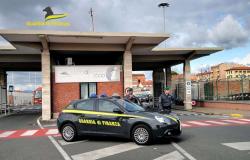The commitment of the Charity of the diocese of Arezzo-Cortona-Sansepolcro towards families who find themselves in difficulty and who risk compromising quality of life and well-being is strengthened. This is that vast social segment renamed the “grey zone” made up largely of Italian people, unemployed, unemployed, with precarious employment conditions or “working poor”. In this context, the “Promozione Umana Rete Aretina” (PURA) project was born, promoted by the diocesan Caritas and the Sichem Association – crossroads of peoples Odv, thanks to the contribution of the CR Firenze Foundation, for income support interventions in the areas of housing, health, mobility, training and education. The project involves, in addition to the diocesan listening center in via Fonte Veneziana in Arezzo, 42 parish Caritas spread across the diocesan territory, drawing on a vast network of qualified operators and volunteers.
“The aim of the project – explains Don Fabrizio Vantini, director of the diocesan Caritas – is not to distribute contributions or assist a certain number of people, but to promote actions in support of full social inclusion and the independent life of people, avoiding their entry into the spiral of structured poverty. It therefore wants to support a good quality of life, promoting social inclusion, encouraging independent restarts, avoiding the need for long-lasting care paths and avoiding the problems of adults falling on disadvantaged children or relatives”.
According to data collected over approximately 20 years by the diocesan Caritas in our territory, annually more than 2000 people ask for help from its network of services in the area, a figure that certainly underestimates the poverty present, but which still offers an insight into the phenomenon . On average, 35% of the people who turn to the Caritas network are of Italian nationality, the most surveyed age group is 40-49 years old, 45% declare they are regularly married, 35% have minor children in the family status and 60% declare they are unemployed/unemployed or have a precarious working condition. Finally, each request for help represents a multi-problem, where economic difficulties or serious poverty add to housing, health, family, educational, poor education, food, addiction, disability/invalidity or detention/justice problems.
In recent years there has been an increase in so-called “working poor” people, elderly people who live with inadequate pensions, people who due to insufficient income are forced to lower their quality of social life, people with eviction orders for innocent arrears , people who give up treatment and health visits, which reduce education and training costs for their children. Consequently, there has been an increase in individualism and social exclusion, indebtedness, problems related to anxiety or depression, but also in addictions and social deviance, especially among young people. The objective of the PURA project is precisely to impact on these phenomena.
“With this project the Church of Arezzo-Cortona-Biturgia seeks to respond to the needs of our people not in an occasional but in a well-structured way – says Bishop Andrea Migliavacca -. My gratitude goes to all the operators of this new project and to the CR Firenze Foundation for their decisive contribution”. For information on the procedural regulation and reporting any cases, please contact the telephone number 0575/354769 or write an email to [email protected].






